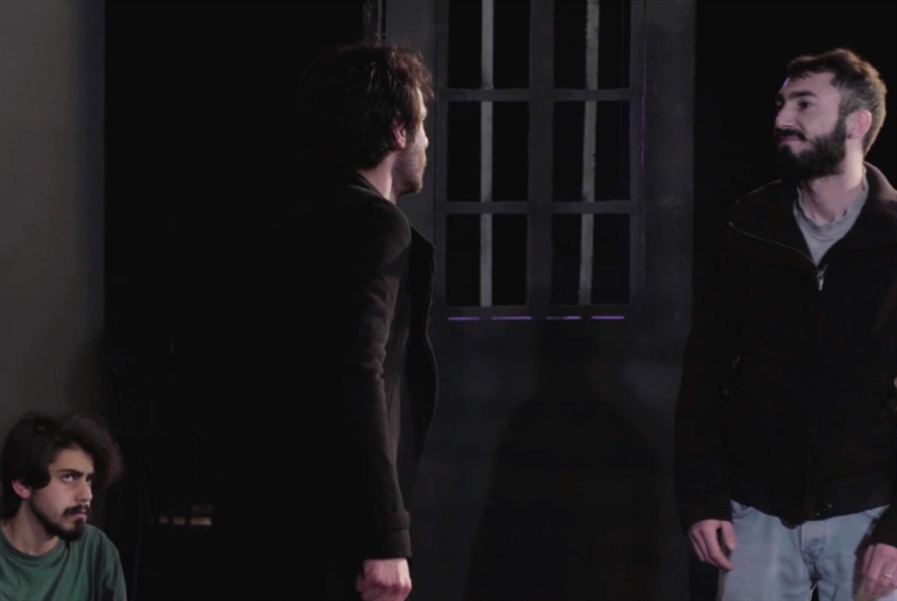There is no doubt that this text relates to the natural sensory experience experienced by Caroline Hatem, like many others, in the October 2019 Uprising: “It is not enough to condemn the regime, but we must sacrifice our lives to will be removed. ” Carolina believes what Camus told the Annenkovs in this play. In this way, “Lebanonization” treats the text while maintaining its dramatic structure, its original structure, and its incorporation of projections of the current situation in Lebanon. The plot of “The Honest” is about the diaries of a revolutionary radical cell who plans to assassinate a corrupt politician. However, they missed the opportunity to kill them, because the circumstances allowed them, and they had suitable reasons for execution, because at zero time the politician was not with a number of children. Thus, the assassination plan failed, widening the cracks in the group and its affiliates: “Is everyone allowed to serve the purpose?” and “Will the killing of thousands of children continue for refusing to sacrifice two children?” Camus’s problem in this text is to refute the duality not only of revolution, but, perhaps, of all mankind.
The performance (performed by Joseph Akiki, Sarah Abdo, Hamza Abyad Yazbek, Ryan Nihawi, Rabih Abdo and Maria Dooyi) is overflowing with realism, especially as Caroline Hatem, professor of choreography and contemporary dance at Lebanese University, follows to special standards. in collaboration with artists and actors. In preparing the actor, he is closer to Stanislavsky’s creative approach, to make the characters realistic, lively, dynamic, speaking in a colloquial dialect. In the context of the characters in The Honest People, Caroline said that “these cartoons may be on the left. He was not a communist or a religious extremist, but rather close to the young people he met in his academic background who could only sacrifice themselves to rid the world of injustice and oppression. ”
There is poor decoration in the middle of the stage, which indicates fatigue and struggle around the space of the characters.
As for directing, the choice fell on minimalist scenography. In the middle of the theater, the decor is poor, indicating fatigue and struggle around the characters ’space. Everyone is trying to get out of these narrow and dark places, and seeks complete freedom. The four pillars that Hatem placed on the scene are based on one of the legends of the Jewish religion, which says that “the world is built on four pillars, carried by thirty -six righteous people. If one of them dies, anyone must take his place. ” “. This myth supports the text of “The Just” and, in turn, does not deny the fact that the production is in the framework of classical realism. The legends in Hatem’s director’s vision don’t stop there, but instead connect the tragic Greek protagonist Antigone with the character “Nasri” (Joseph Akiki), who is willing to sacrifice for the sake of serving values. of man, and not to compromise. in principles. . The music of Lebanese rapper Jaafar Al-Taffar, with everything it brings to itself-revolution, madness and chaos, on the one hand penetrates the body of the actors, and on the other hand, disrupts the essence of the viewer. It engages both sides in the revolutionary game and makes them cohesive and cohesive unity. What they see on stage they have probably experienced before. A musical choice that supports the ideas of the Lebanese director. The music, it seems, spoke to the viewer, who was in his position, about the need to move towards the “sun” and unite with him, as did his belief in “Nasri”, that fears do not disappear, and he never tires of crying out in the face of tyranny and emptiness.
And since that’s not the point, Caroline Hatem said Adlon plans to tour most of the marginalized and disadvantaged Lebanese regions, in a move where it seeks to achieve what it has invested in its Yazn organization. The latter aims to produce theatrical and performing arts in a way that promotes cultural decentralization. “The theater should not stay within Beirut, it should roam all the poor cities,” Caroline told us, hoping that Albert Camus ‘text, which contains definitions of freedom, would roam others’ t other regions of Lebanon.
Al-Adlon: Question: 20:30 to May 29-and from June 3 to 5-Mono Theater (Ashrafiya-Beirut)-for information: 70/789906
Source: Al-Akhbar
